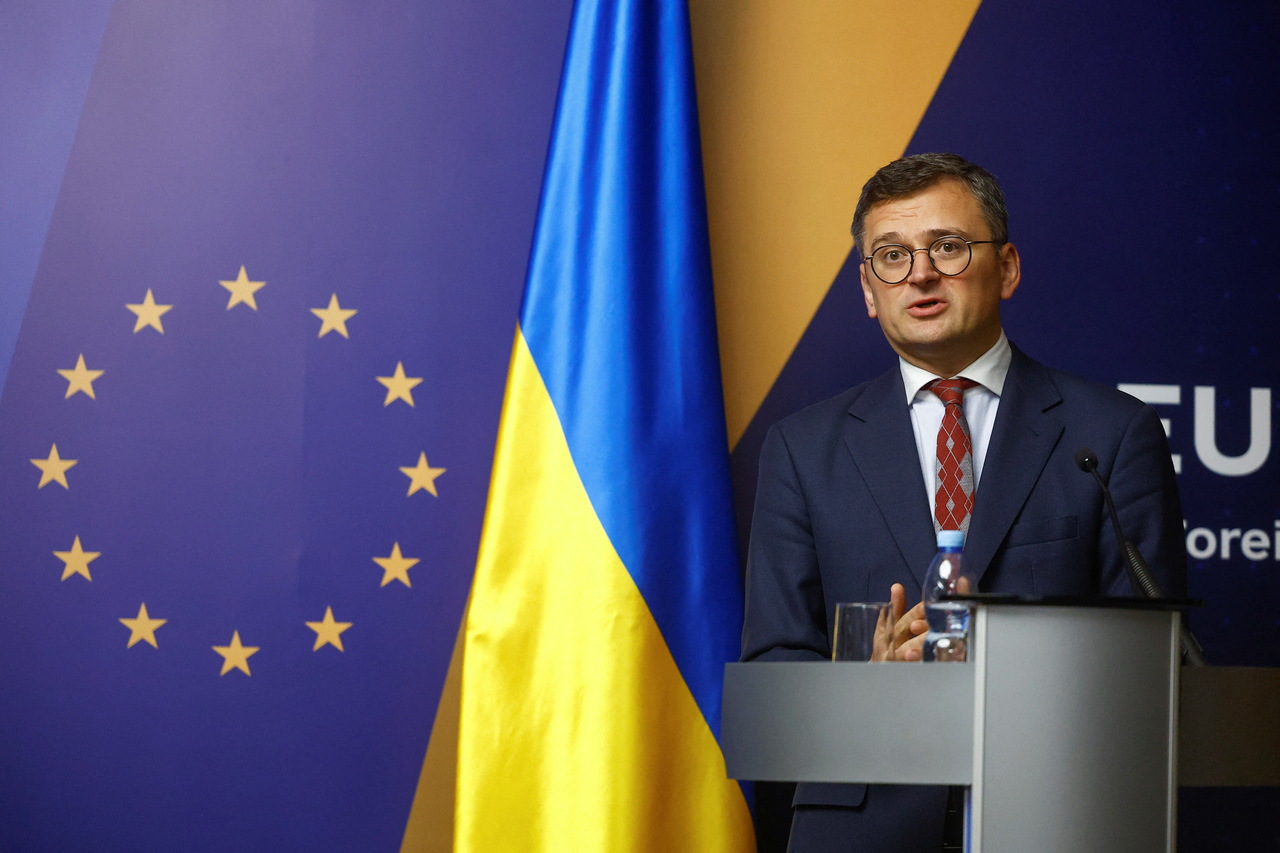EU Sizing Up Prospects for Eastern Enlargement
In 2024, the EU may adopt negotiating frameworks and start accession talks with Ukraine and Moldova. In the case of Ukraine, however, it will face objections from Hungary. While there is a consensus that EU membership would stabilise those countries, the Member States are divided over the terms of the process, including EU institutional reform. In order for the Eastern enlargement of the European Union to take place, it is necessary to find a compromise on this issue.
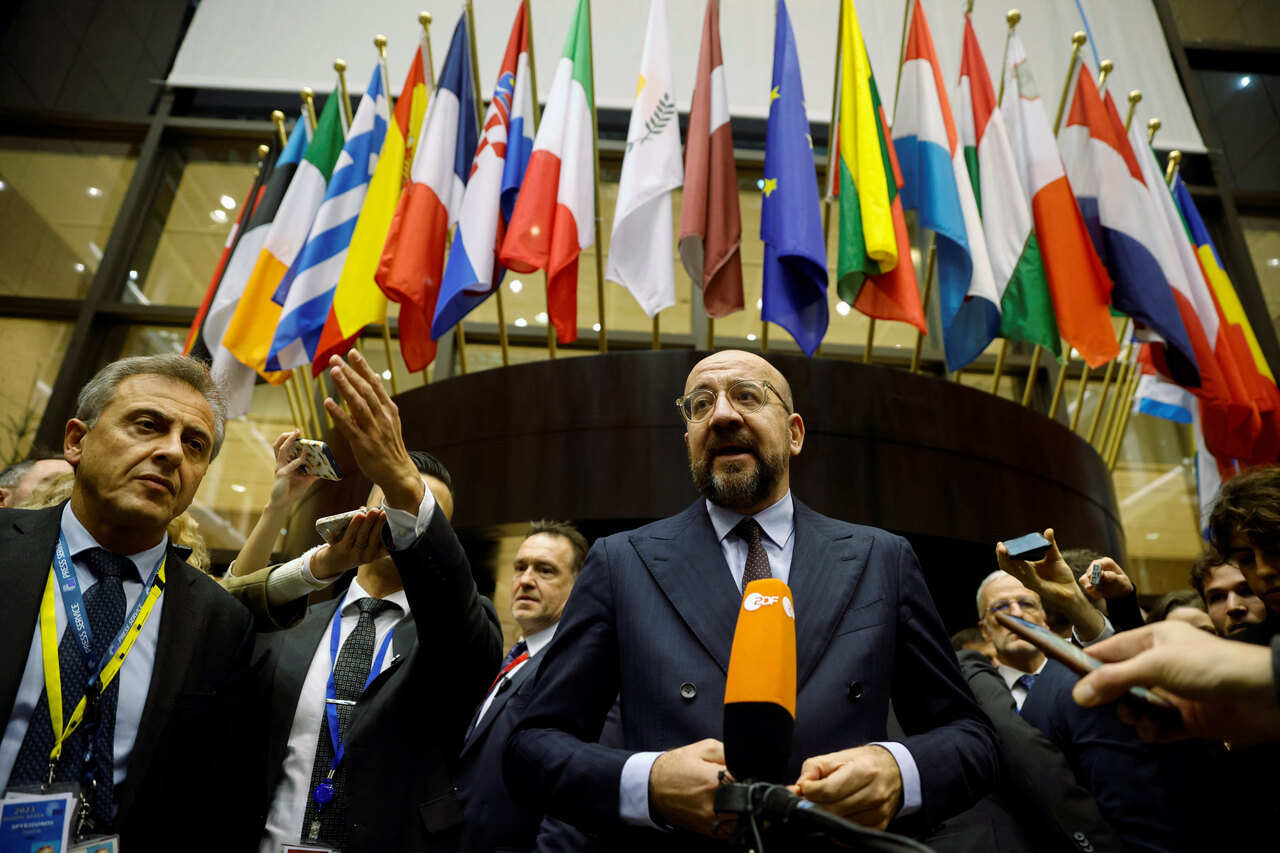 JOHANNA GERON / Reuters / Forum
JOHANNA GERON / Reuters / Forum
At its meeting on 14-15 December, the European Council (EUCO) decided to open accession negotiations with Ukraine and Moldova. The Council will decide on the negotiating frameworks, which is a document setting out guidelines and principles for the talks, once they have met the remaining conditions in the field of the rule of law, in line with the recommendations of November’s enlargement package presented by the European Commission (EC). The recommendations concern the adoption by Ukraine of appropriate legal or institutional solutions in the areas of regulating lobbying activities, the situation of national minorities, and fighting corruption, and Moldova in the field of the judiciary, fighting corruption, and deoligarchisation. The EUCO granted EU candidate status to Georgia, while also expecting the implementation of EC recommendations. Although Hungarian Prime Minister Viktor Orbán signalled a veto on Ukraine before the summit, he left the EUCO meeting room during the vote, so he formally abstained (Article 235 TEU). The EUCO reaffirmed that the EU must in parallel reform itself for enlargement. It will adopt a roadmap for internal reforms by the summer of 2024, including changes to Union policies and their financing and improvements to the functioning of EU institutions.
Further Enlargement Policy Procedures
In the case of Moldova and Ukraine, the EC will present an opinion on their fulfilment of the remaining recommendations in March 2024. If the assessment is positive, the Council could then adopt the negotiating frameworks prepared by the EC (the Belgian presidency will negotiate this document in the Council of the EU in the first quarter of 2024). There would also be a first meeting between the EU and candidate negotiating teams at the intergovernmental conferences.
The EC is carrying out an assessment of the compatibility of Moldova’s and Ukraine’s national law with the EU’s (so-called screening) and will report on it. This will be the basis for formulating further conditions for the candidates. Ukraine has already prepared a screening of its law and Moldova a partial screening. The negotiations will concern the pace of implementation of EU legislation, including setting transition periods, which are divided into six thematic clusters covering a total of 33 negotiating chapters. In case of regression in the field of the rule of law, the Council can suspend talks or renegotiate chapters already closed. The EC has already started work on a roadmap for the cluster on fundamental issues (e.g., judiciary, public administration reform). In Georgia’s case, in order to open negotiations it must have a positive assessment from the EC on the fulfilment of the conditions set and then the approval of the European Council.
In enlargement policy, in principle all decisions on, for example, opening clusters and closing chapters, are taken unanimously. After the completion of negotiations, the EC will issue an opinion on the readiness of the country for EU membership. On the basis of this, the EU countries must decide unanimously to close the talks. The European Parliament must also give its consent to accession. The EU members and the candidate country then sign and ratify the accession treaty.
Challenges for the EU’s Eastern Enlargement
The Member States are divided on the terms of Eastern enlargement of the Union. For security reasons, in order to counter Russia’s aggressive foreign policy, the proponents of the rapid entry of Ukraine and Moldova (and possibly Georgia) into the EU are mainly Poland and the Baltic States. Publicly, only Hungary is sceptical about Ukraine’s accession, but also some of the countries that supported the opening of negotiations are not yet convinced of its EU membership, including Austria, the Netherlands, and France. The Eastern enlargement of the EU is supported by the European Commission and the European Parliament.
The challenge will be to adapt the EU’s institutions, policies and budget to the Eastern enlargement. A point of contention is EU institutional reform. For the Netherlands, France and Germany, and others, reform is a prerequisite for the EU to operate smoothly after enlargement, while some countries, especially in Central Europe, consider the existing legal arrangements to be sufficient. The debate focuses on increasing the efficiency of the decision-making process, including mainly the introduction of qualified-majority voting in foreign and tax policies, among others, while the Member States overall remain divided on this issue. On the other hand, they agree on the need to adapt EU policies and the budget to enlargement. Given the structure of Ukraine’s economy and its population, disputes will arise over, for example, the determination of the size of the EU budget between net contributors and beneficiaries of the budget and the future shape of cohesion and agricultural policy.
In the longer term, a key condition for enlargement will be to guarantee Ukraine’s security after the war. Although formally the absence of territorial conflicts is not a criterion for accession, the Member States fear an escalation of military action by Russia. Some of them, such as Germany, argue that Ukraine could invoke the mutual defence clause (Article 42(7) TEU), according to which if a Member State is the victim of armed aggression on its territory, the other Members have the obligation of aid and assistance to it in response. However, the debate on security guarantees for Ukraine is at an early stage in both the G7 and the EU, and there is as yet no consensus among Alliance members for Ukraine’s entry into NATO after the war. Discussions are underway in the Union to provide long-term military support to Ukraine and to increase the capacity of the arms industry in this direction.
The pace of Eastern enlargement may slow down due to the candidates’ internal situations. Although Ukraine and Moldova have adopted comprehensive institutional solutions in the field of anti-corruption, they require further systemic and multi-year changes in terms of increasing the transparency of the judiciary, public procurement, and in other areas. Georgia, on the other hand, is undertaking sham reforms in the field of the rule of law, which are intended, among other reasons, to maintain good relations with the EU because of high public support for European integration (89%). Possible corruption scandals in these countries will be an argument for a group of EU members raising rule-of-law issues (e.g., France, Germany, the Nordic countries, Belgium, the Netherlands) to slow down enlargement. Due to the poor economic situation of Ukraine and Moldova and the high cost of compliance with EU standards, the negotiations may be protracted, especially in Moldova’s case with regard to agriculture, energy, and some other areas, while for Ukraine, it will apply to most economic chapters.
Prospects
Given the high commitment of the Ukrainian and Moldovan authorities and the EC, the adoption of negotiating frameworks and the start of accession talks is possible in 2024. In light of the unfavourable situation of war in Ukraine, it will be important for most EU leaders to demonstrate support for Eastern enlargement. However, Hungary may try to block the negotiation process with Ukraine at later stages in order to unfreeze EU aid or sabotage the process during its presidency of the EU in the second half of 2024. To meet the expectations of the Georgian public, the EC will probably signal its readiness to open negotiations with Georgia once the conditions are met.
For the negotiations with Ukraine and Moldova to proceed smoothly, Poland can take diplomatic action towards the rapid adoption of the negotiating frameworks and, during its presidency of the Council of the EU in 2025, for opening clusters. In the field of the rule of law, in order to take full account of the local circumstances, it would be worthwhile for the EC to develop recommendations in cooperation with Moldovan and Ukrainian NGOs. It will be important to increase EC assistance to the governmental and parliamentary administrations of these countries in the area of European policy, for example, to increase funding for trainings on EU law. To support both countries economically, already during the negotiations the EU may further deepen their economic integration with the Single Market by using provisions in the Association Agreements, for example, on the digital and transport markets, and product standardisation.
Reaching a consensus on EU institutional reform will be essential for having all Member States agree to the EU’s Eastern enlargement. The compromise could include the introduction of qualified-majority voting in certain foreign policy areas on the basis of the Lisbon Treaty, for example, in the area of sanctions or when closing chapters in enlargement policy. In the longer term, a key factor will remain the issue of security guarantees to Ukraine after the war, supplied by the G7 or through NATO membership in parallel to EU accession.


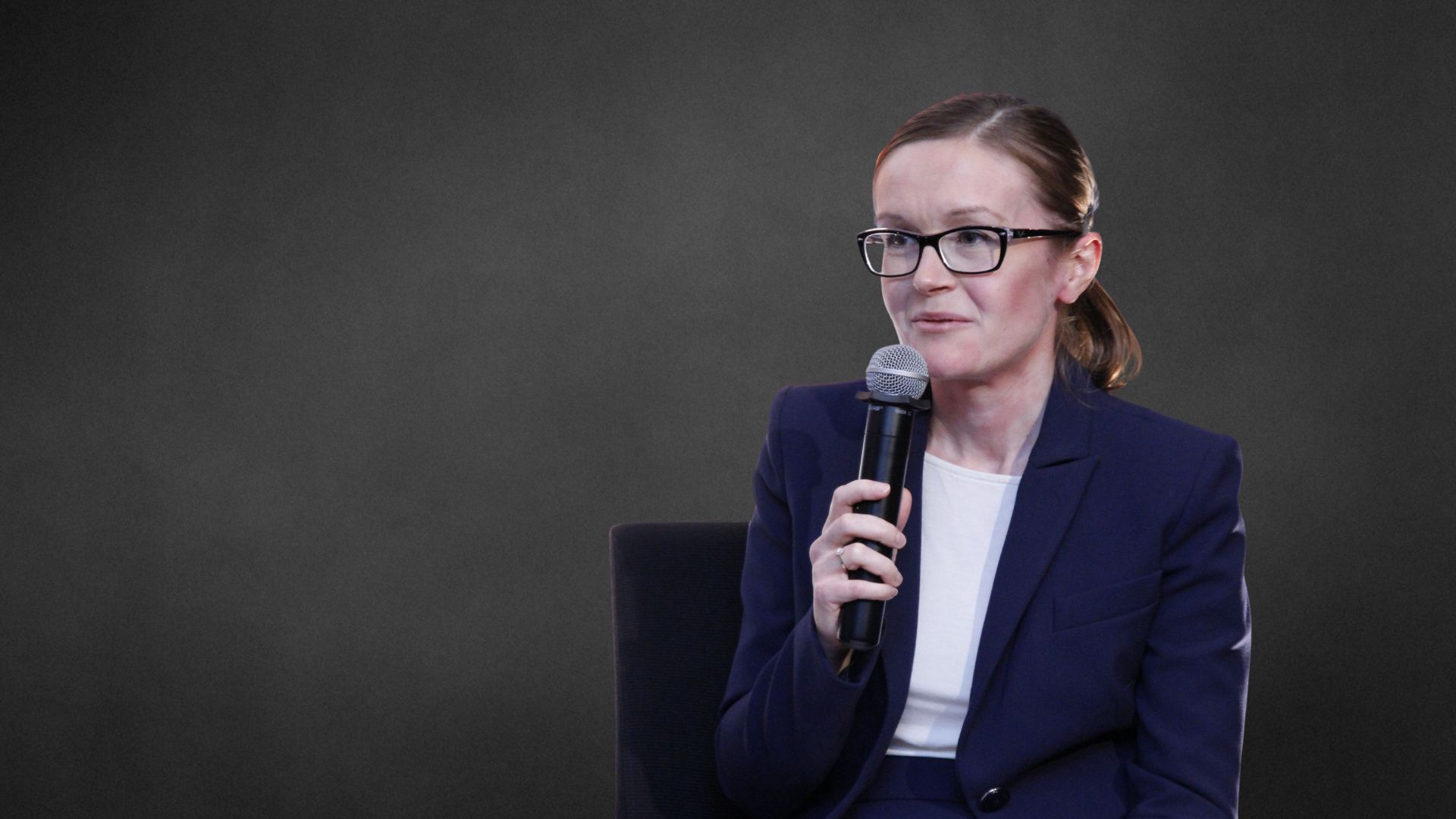
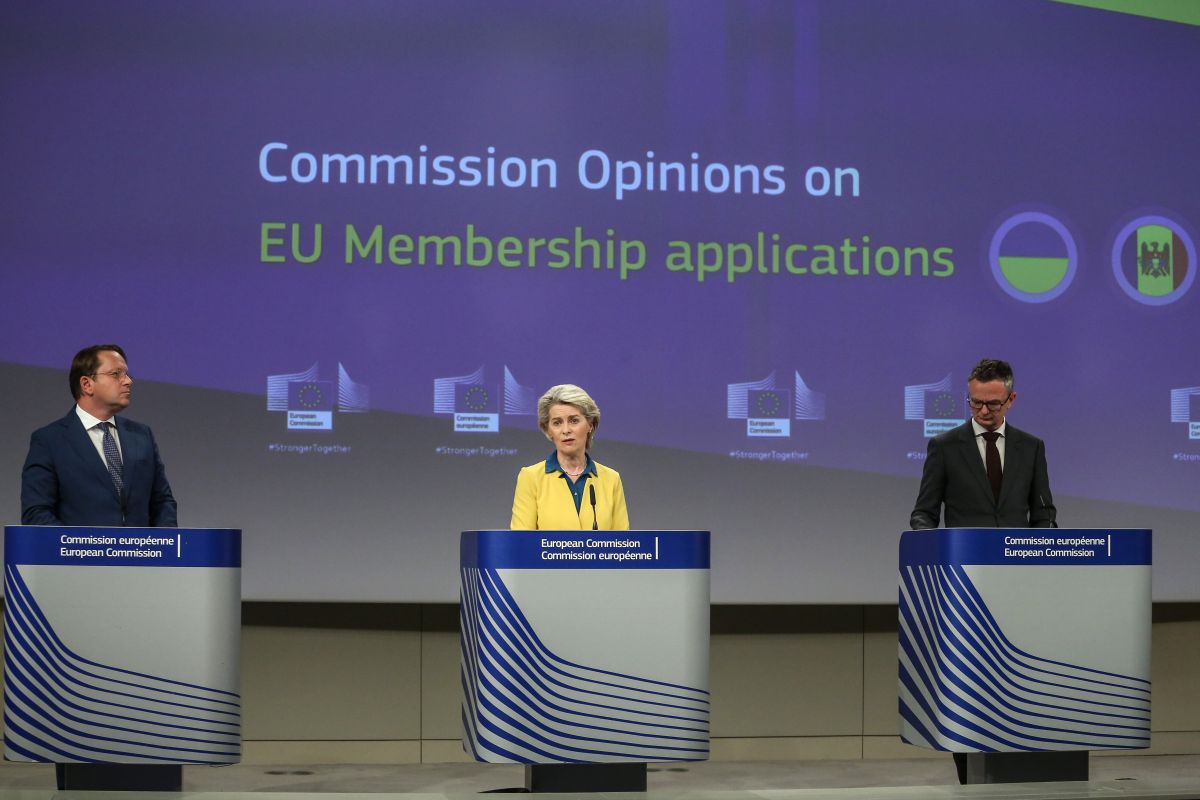
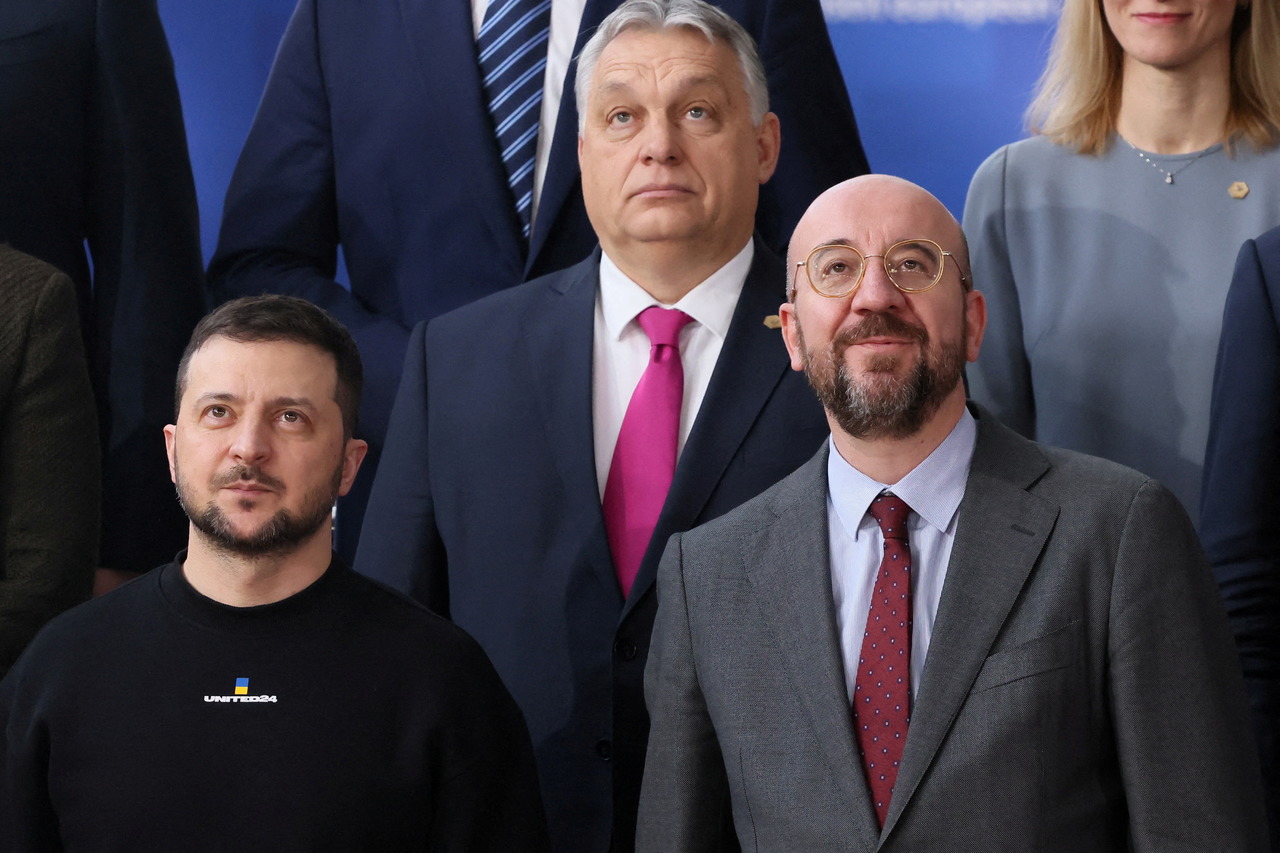
.jpg)
.jpg)
(1).jpg)
